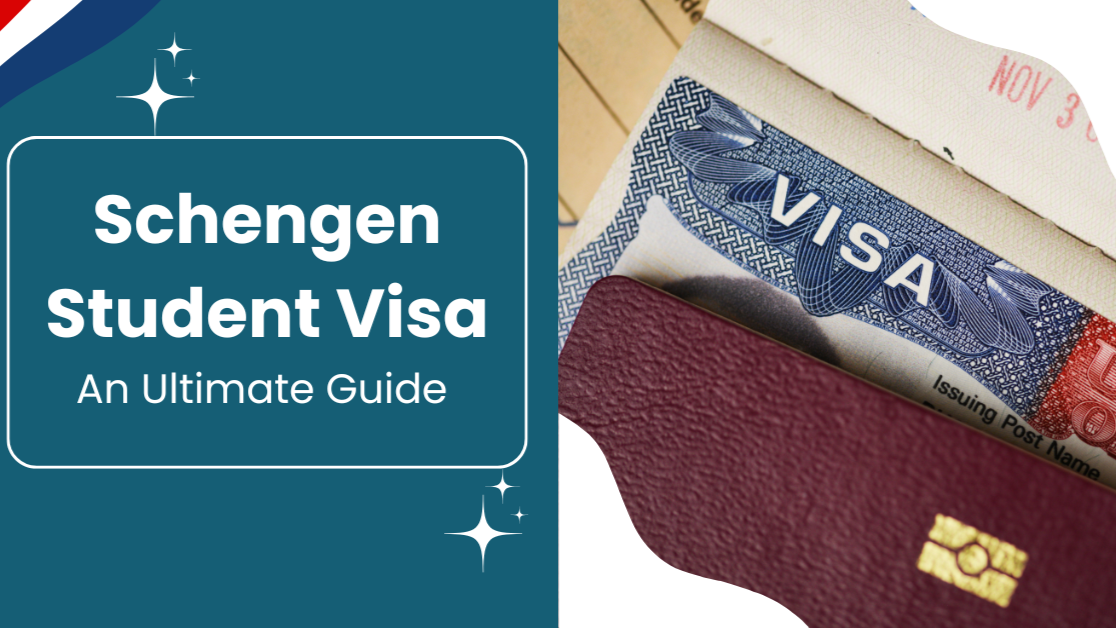Student Visa for Europe – The Ultimate Strategy for Secure Admission in 2024
Securing a Student Visa for Europe in 2024 is the
first step toward achieving your dream of studying abroad. With universities
across Europe offering world-class education, many students from all over the
world are eager to experience life in a European country. However, obtaining a
student visa can sometimes be a challenging and lengthy process. The key to a
successful visa application lies in understanding the requirements, avoiding
common mistakes, and following the right strategy. In this guide, we will walk
you through the ultimate strategy for securing your Student Visa for Europe
in 2024.
Why a Student Visa for Europe is Essential in 2024
If you're planning to study in Europe, obtaining a student
visa is a must. A student visa grants you legal permission to stay and study in
your chosen European country for the duration of your course. Without it, you
cannot attend classes, access healthcare, or legally work while studying. For
2024, it’s crucial to stay updated on any changes in visa policies, as many
European countries have streamlined their processes to attract international
students.
Additionally, many European countries offer post-study work
opportunities for graduates, making the Student Visa for Europe not just
a ticket to education but also to future career prospects.
Top 5 Tips to Secure Your Student Visa for Europe
- Start
Early and Stay Organized: Visa applications can take time. It’s
crucial to start the process well in advance—at least 3 to 6 months before
your course begins. Gather all the required documents, such as proof of
admission to a recognized university, financial proof, passport, and visa
application forms.
- Provide
Complete and Accurate Documentation: Incomplete or incorrect
documentation can delay your visa application. Ensure that you have all
the necessary paperwork, including your passport, university acceptance
letter, proof of financial support, health insurance, and any language
proficiency certificates.
- Ensure
Financial Stability: One of the key requirements for a student visa is
proving that you can financially support yourself during your studies.
This may include bank statements, scholarships, or financial guarantees
from your family or sponsors. Make sure the financial documents reflect
your ability to cover tuition fees, living expenses, and other costs while
in Europe.
- Adhere
to Health and Travel Insurance Requirements: Most European countries
require students to have valid health insurance. You may also need to show
proof of travel insurance. Make sure to research the specific insurance
requirements for the country where you plan to study.
- Stay
Informed About Country-Specific Requirements: Different European
countries have different student visa requirements. Research the visa
process for your chosen destination—whether it’s Germany, France, the UK,
or any other European country—to ensure you meet the specific criteria.
Common Mistakes to Avoid When Applying for a Student Visa
for Europe
- Missing
Deadlines: Failing to submit your application before the deadline can
result in a denial. Always double-check the submission deadlines for your
visa application.
- Submitting
Incomplete Documents: Double-check your documents before submission.
Missing even a small document, such as a proof of residence, can delay
your application process.
- Lack
of Financial Proof: One of the most common reasons for visa denials is
insufficient proof of financial support. Ensure that you provide clear
evidence that you can financially support yourself throughout your stay.
- Not
Preparing for the Visa Interview: Many countries require a visa
interview as part of the process. Prepare well by understanding the
requirements, your university course, and your future plans in Europe.
This will show the visa officer your genuine intention to study.
- Overlooking
Language Proficiency: Depending on the country, you may need to prove
your proficiency in the local language or in English. Ensure you have the
necessary certificates, such as TOEFL, IELTS, or equivalent.
How to Navigate University Applications and Visa
Processing for a Successful Study Abroad Experience
Navigating the university application process and student
visa can feel overwhelming, but with the right steps, you can streamline both
processes.
- University
Application Tips: Research universities that align with your academic
goals. Each university may have its own application process, so be sure to
follow the specific guidelines. Apply early and make sure your application
is complete and accurate.
- Visa
Processing: Once you’ve received an acceptance letter, initiate your
student visa application as soon as possible. Follow the steps carefully,
provide the necessary documents, and attend interviews if required.
- Stay
Updated on Changes: Immigration policies and student visa requirements
can change frequently. Stay up to date with any updates by checking the
official government websites or consulting a professional service like
Eurostaffs for the latest information.
Conclusion:
Securing a Student Visa for Europe in 2024 requires
careful planning, attention to detail, and the right strategies. By following
the tips outlined above and avoiding common mistakes, you can increase your
chances of a smooth visa application process. Don’t forget to stay informed and
prepared at every step of your study abroad journey.
At Eurostaffs, we specialize in helping students
navigate the complex visa application process and university admissions for
Europe. If you're ready to take the next step in your academic journey, contact
us today to receive expert assistance in securing your student visa and
university placement.
Call to Action (CTA):
Ready to start your study journey in Europe? Contact Eurostaffs today for
expert guidance on your student visa application and university admissions! Let
us help you achieve your dreams.

 French
French
 Arabic
Arabic
 English
English



